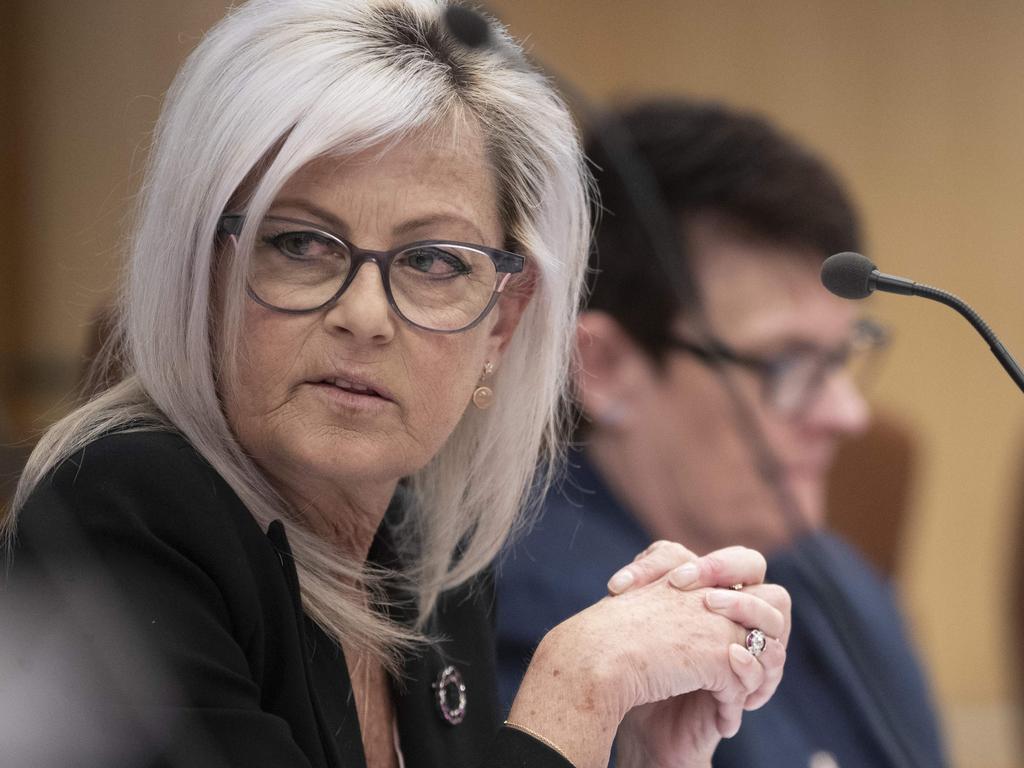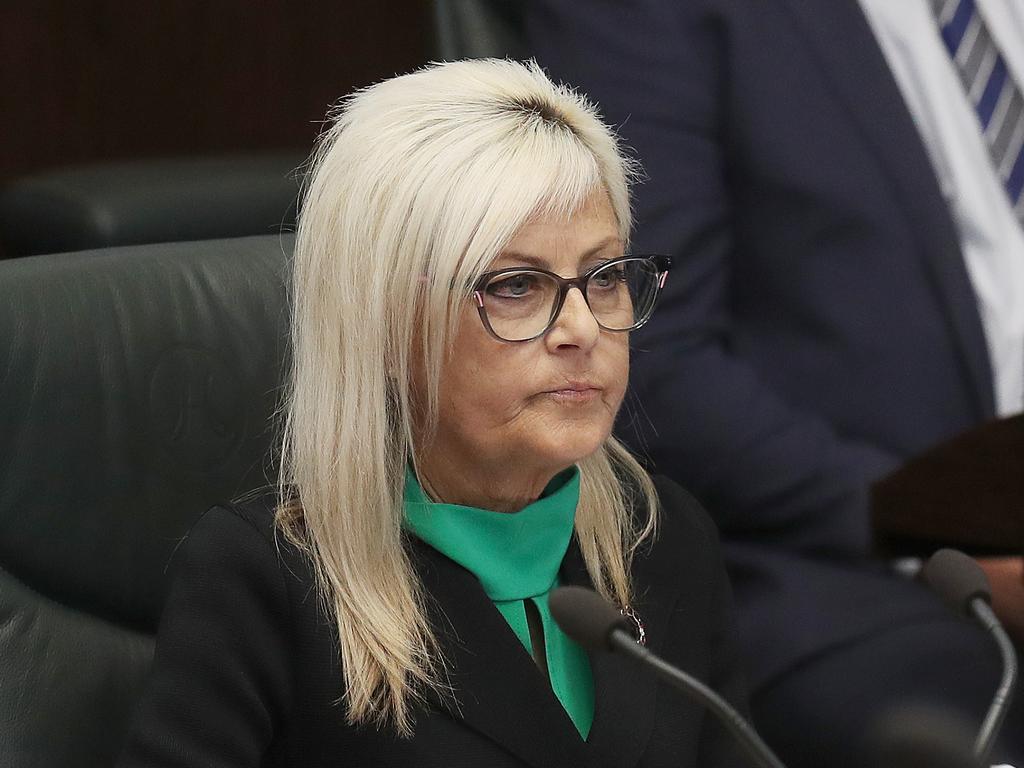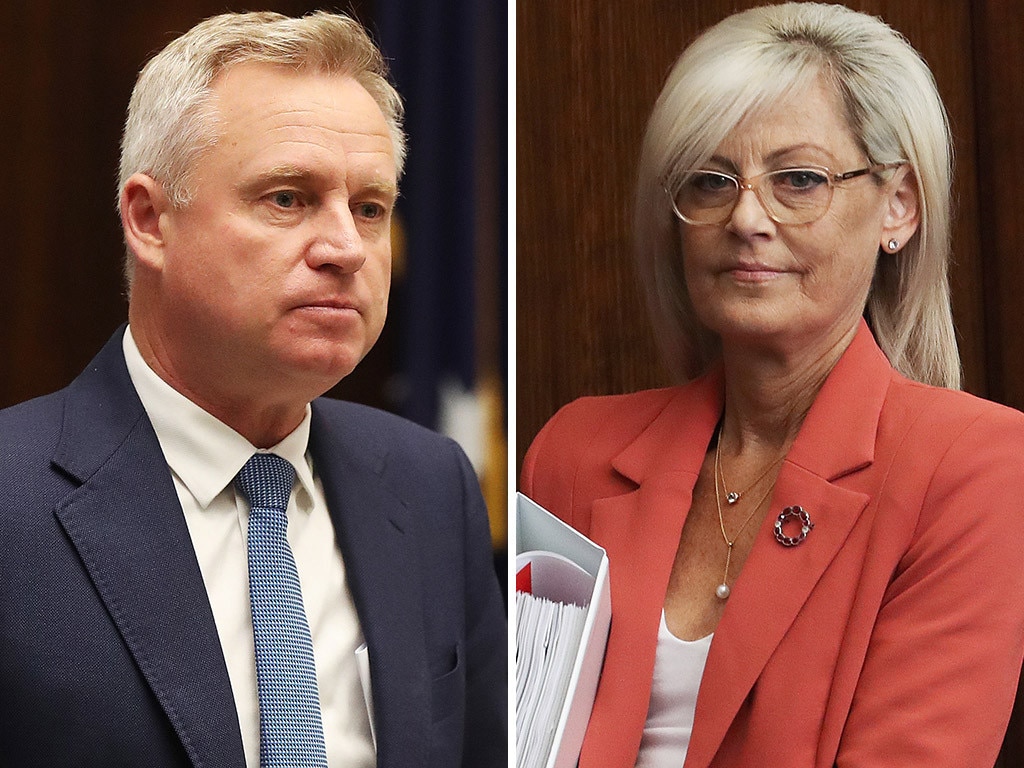Elise Archer and a ‘toxic culture’: the letter that doomed Tasmanian attorney-general
A ‘toxic’ culture in the office of then-Tasmanian attorney-general Elise Archer left a seasoned staffer a ‘shell’ of his former self, according to the complaint that ended Ms Archer’s career.

A “toxic” culture in the office of then Tasmanian attorney-general Elise Archer left a seasoned staffer a “shell” of his former self, according to the complaint that ended Ms Archer’s career.
The Australian has obtained the letter – from one of Ms Archer’s advisers to Anti-Discrimination Commissioner Sarah Bolt – that sparked the bullying investigation into Ms Archer.
Until then a senior figure in the nation’s last Liberal government, Ms Archer quit in late September after the bullying probe and insulting messages were exposed by The Australian.
In the August 22 letter, the adviser tells Ms Bolt her recommendations to improve the culture in ministerial offices made a year earlier had been ignored in Ms Archer’s office.
A “revolving door” of staff continued to flee “disrespectful, rude, demeaning and soul-destroying” behaviour, the staffer claimed.
“Of the 12 staff at the time of the release of the report, only one adviser and one administrative staff person remain,” he told the commissioner.
“Most just walk away when they’ve had enough bullying and return to their substantive positions in the Tasmanian public service. They generally don’t complain to anyone in authority because they know they won’t be supported and they don’t wish to damage their future career prospects.”

The adviser said after a little more than a year in his job with Ms Archer, he “buckled … when the stress became too much” and he was diagnosed with “significant workplace stresses”.
“To put it bluntly, I am a shell of the confident, highly capable person who walked into that office,” the adviser, understood to be on workers’ compensation, wrote to Ms Bolt.
Within weeks of receiving the adviser’s letter, Ms Bolt, who had received other complaints about Ms Archer during the course of her culture inquiry, took the issue up with Premier Jeremy Rockliff.
On September 21, 2023, the Premier confirmed to Ms Archer his intention to appoint an independent person to investigate the allegations. Mr Rockliff has insisted that inquiry – by former judge Raymond Finkelstein – continue, despite Ms Archer’s resignation.
Ms Archer, who has insisted she always strove to “provide my team with a healthy and happy workplace”, on Wednesday again denied any bullying conduct. She told The Australian “disgruntled staffers” were behind accusations against her.
There were “many reasons” for high turnover in her office, she said, including double counting, where public servants moved on multiple occasions between the Justice Department and her ministerial office.
“I had staff come back and forth (from the public service) so each time it got registered as a staffer leaving,” she said. “A lot of them in Justice take up higher opportunities, because there are so many jobs going, and I didn’t stand in their way of doing that.”
Ms Archer, understood to be devastated by the loss of her career, questioned the Premier’s “vindictive” decision to continue the Finkelstein inquiry.
“The cost would be enormous, and for what purpose?” she said. “I’ve resigned and am not subject to the ministerial code of conduct any more. It’s pointless.”
Mr Rockliff said the public would expect the investigation to continue. “In the state service, if an investigation has commenced, a resignation does not result in it being abandoned,” he told The Australian. “The public would expect my approach to be consistent with this standard.
“The people who have come forward and made complaints have a right to be heard, and have the confidence that their complaints will be acted on.”
Ms Archer’s supporters have claimed leaks against her originated from the Premier’s office, something Mr Rockliff denies.






